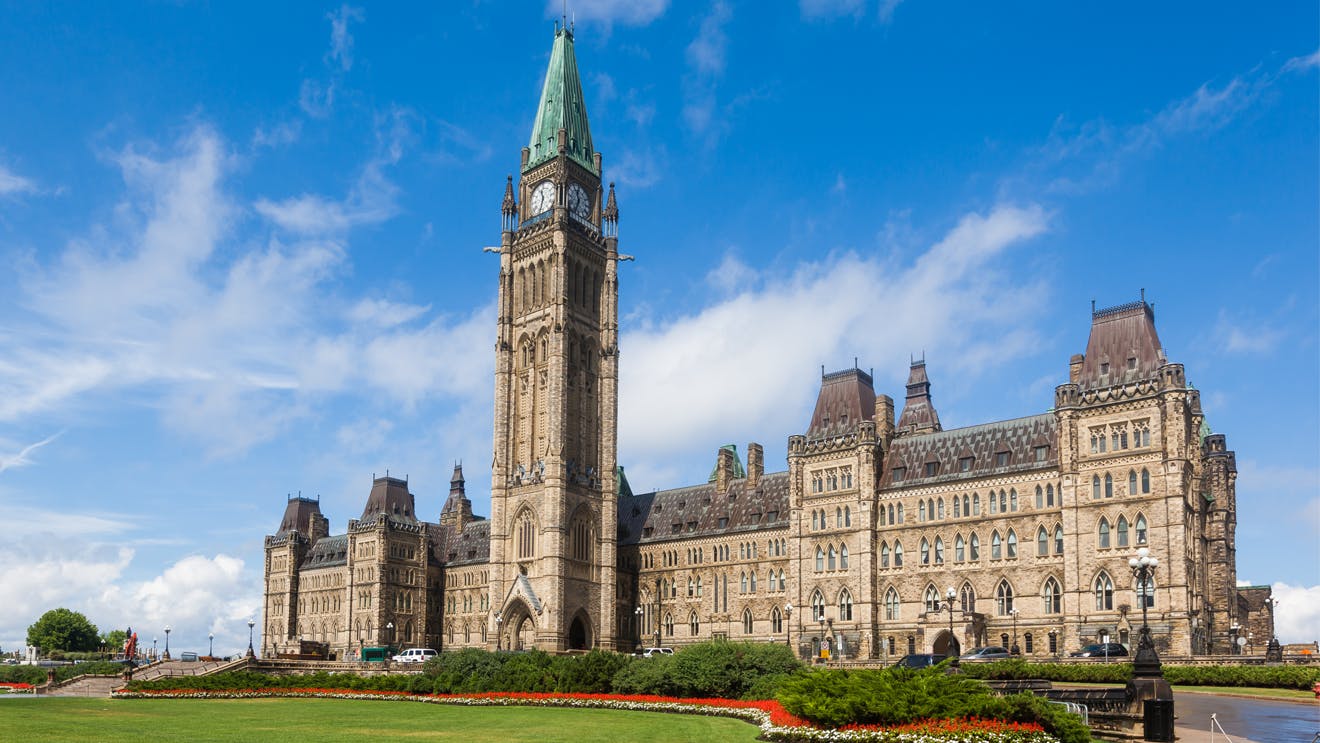August 3, 2023
MP Peter Fonseca
Chair, Standing Committee on Finance
MP Fonseca,
Thank you for the opportunity to provide a written submission to the Standing Committee on Finance in advance of the 2024 federal budget.
The Calgary Chamber is encouraged by the government’s continued emphasis on investments in clean technology, supply chain infrastructure, internal trade support and commitment to reducing regulatory timelines. In Budget 2024, we hope to see these priorities front and centre, recognizing a strong and inclusive business community means a higher quality of life for all Canadians.
Ensuring the right balance between strategic investments, business supports and long-term fiscal planning remains critical to Canadas’ financial future. Alberta businesses continue to face challenges, with the Q2 2023 Canadian Survey on Business Conditions indicating their main concerns remain rising costs (58.5%), labour shortages (36.4%), attracting customers (22.5%) and supply chain constraints (18.9%). For many, their ability to handle these pressures is waning. Approximately 36.5% of Alberta businesses are unable to take on more debt, with many bracing for lower profits and 7.4% expecting to close their business altogether. Considering these challenges, Budget 2024 must balance savings and fiscal prudence with strategic policy and compelling financial incentives that support businesses near and long-term success.
In consultation with Calgary’s business community, the enclosed pre-budget submission proposes recommendations that will strengthen Canada’s economic position by providing relief for businesses facing the pressures of rising costs and inflation, promoting economic competitiveness and diversification across the country through investment attraction, and supporting those struggling with skills gaps and labour shortages.
Thank you in advance for your consideration. We look forward to working with you and your committee colleagues to accelerate a sustainable and prosperous future for all Canadians.
Sincerely,
Deborah Yedlin
President & CEO
Calgary Chamber of Commerce
Calgary Chamber of Commerce – Submission to the Federal Standing Committee on Finance Calgary Chamber 2024 pre-budget submission
While several key investments were advanced in Budget 2023, the Calgary Chamber continues to advocate for important initiatives to support the business community, including:
Affordability
- Provide greater affordability supports for small and medium-sized businesses, given the significant challenges they are facing related to inflation, rising interest rates, rising costs of labour, supply chains and rising costs of insurance.
- Automatically extend the current Canada Emergency Business Account repayment deadline by two years to the end of 2025, while maintaining access to the forgivable portion, giving small businesses the opportunity to grow their revenue and not be constrained as a result of the current deadline of year-end 2023.
- Ensure affordability and reliability are central to policy development. This includes a commitment that decarbonization policies, including the Clean Electricity Regulations, will prioritize a technology-agnostic approach to emissions reduction, allowing markets to select the most cost-effective technologies to achieve climate targets. Moreover, provide additional clarity on financial supports, such as the Clean Electricity Investment Tax Credit, that seek to further the objective of net-zero electricity systems by 2035.
- Work with other levels of government to advance affordable housing initiatives, including those outlined in the City of Calgary’s Housing and Affordability Task Force Recommendations, such as the creation of incentives for more affordable non-market and market housing units.
Talent and Labour
- Enhance measures to address the labour shortage and set newcomers up for success. Considering 36.4 per cent of Calgary businesses anticipate facing labour-related obstacles this quarter, the government should consider measures that support credentialing and accreditation to ensure newcomers are eligible to work in in-demand fields upon their arrival.
- Collaborate with Alberta-based businesses to understand their temporary foreign worker requirements, identifying program changes that will support business growth, such as increases to provincial nomination limits, extending the time workers are eligible to remain in Canada and evaluating options to reduce the cost of performing a Labour Market Impact Assessment.
- Ensure Canada’s youth have opportunities to develop skills and gain valuable work experience by providing funding to local businesses to help employers create work-integrated learning opportunities and access emerging local talent.
- Increase support for immigrant settlement agencies across the country, including local organizations such as The Centre for Newcomers and Immigrant Services Calgary, which are facing challenges due to funding uncertainty. These agencies are critical to settle newcomers to Calgary and helping them become part of the local labour force.
Technology and Innovation
- Establish the Canadian Innovation Corporation in Calgary, in light of the anticipated Canadian Innovation Corporation Act outlined in last years budget and Calgary’s position as the pre-eminent jurisdiction for innovations in clean tech, ag tech, fintech and other economic sectors of emerging importance.
- Support rural and Indigenous communities seeking to access high-speed internet by investing in rural broadband and by engaging the telecommunications sector to reach an agreement on a review of Canada’s spectrum policy. This includes assessing a potential increase in the number of spectrum licenses and determining whether “use-it-or-lose-it” conditions for all spectrum licenses deemed critical for delivering universal coverage is necessary.
- Provide incentives that encourage Canadian venture capitalists to invest in Canadian companies by offering compelling financial supports that de-risk investments.
- Support the creation of wet lab spaces across the country, providing opportunities for startups in a wide variety of industries to arrive at a proof of concept and viable product stage in the ecosystem in which they are based.
Decarbonization
- Provide clarity on Carbon Capture, Utilization and Storage incentives, and other tax credits, given the importance and urgency of investment in emissions reduction technology to meet Canada’s ambitious climate goals.
- Advance the development of production tax credits (PTC) for Clean Hydrogen, Carbon Capture, Utilization, and Storage and Low-Carbon Fuel in Canada to de-risk investment and compete with the U.S. Inflation Reduction Act (IRA). Proposed tax credits should be expanded to a PTC that includes direct and indirect project costs, capital costs, operating expenditures, transmission, storage, exploration and development costs to provide greater investor certainty. Moreover, PTCs should include direct pay options to provide value for Indigenous partners and pension funds. Costs incurred prior to a final investment decision (FID) should be partially eligible, and fully eligible once an FID has been made. Additionally, the PTC should ensure neutrality on the differing methods of production, instead focusing on carbon intensity.
- Advance an economy-wide, sector agnostic, national GHG offset system based on consultations with industry, provincial and territorial governments, and Indigenous partners. Ensure alignment with existing offset credit systems, including provincial systems, to create consistency between jurisdictions and to ensure compatibility with the anticipated implementation of Article 6 of the Paris Agreement.
- Establish and implement carbon contracts for differences (CCfD) based on consultation with industry. CCfD’s will be critical for de-risking investment in decarbonization projects by guaranteeing long-term credit values and allowing companies to access financing.
- Develop incentives and policies to advance biofuel production, including sustainable aviation fuel, leveraging Canada’s agricultural expertise to be competitive with the IRA’s Clean Fuel Production Credit.
Strategic Infrastructure and Supply Chains
- Support community vibrancy in downtown Calgary by collaborating with all orders of government to unlock funding that advances infrastructure projects essential to sport, entertainment, arts and culture, tourism and transportation, helping attract people, businesses and investors to the city.
- Invest in transportation infrastructure that connects Calgary’s Airport with downtown and to other jurisdictions, enhancing the city’s position as a jumping-off point for regional tourism.
- Advance the development of the National Supply Chain Strategy, given the ongoing cost and lengthy timeline challenges facing businesses. Invest in port-related infrastructure to facilitate further growth of our export markets beyond the United States.
- Explore the creation of a National Industrial Strategy, developed in partnership with businesses across Canada and economic sectors, to drive a cohesive approach to economic growth that leverages Canada’s traditional and emerging economic strengths.
- Reduce internal trade barriers such as licensing, transportation and labour mobility restrictions by collaborating with other orders of government, Chambers of Commerce, and other stakeholders on the development of a domestic trade accelerator initiative focused on increasing domestic trade volumes and reducing barriers to internal trade.
Economic Reconciliation
- Adopt the requests of organizations like the First Nations Major Project Coalition, who are seeking the creation of a national Indigenous loan-guarantee program.
- Advance opportunities for Indigenous communities to buy ownership stakes in major projects, including and beyond resource development opportunities, through the Canada Infrastructure Bank and through the establishment of a federal Indigenous loan guarantee program, similar to Alberta’s Alberta Indigenous Opportunities Corporation (AIOC).
ABOUT THE CALGARY CHAMBER OF COMMERCE
The Calgary Chamber exists to help businesses thrive. As the convenor and catalyst for a vibrant, inclusive and prosperous business community, the Chamber works to build strength and resilience among its members and position Calgary as a magnet for talent, diversification and opportunity. As an independent, non-profit, non-partisan organization, we build on our 132-year history to serve and advocate for businesses of all sizes, in all sectors and across the city.







